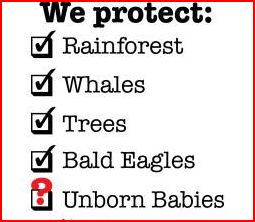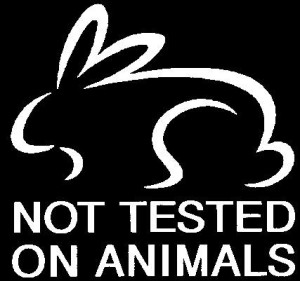 Having been slightly vaccine-obsessed for more than two years now, it can be very difficult for me to comprehend why so many parents haven’t bothered to research the subject more thoroughly (if at all) and how some, after research, can be comfortable with the concept of immunization in its current form. I fully support freedom of choice in the matter, but at this point, as I am mired in reversing neuroimmunological damage done to my children, it is hard to wrap my head around the belief people hold that their kids will be “just fine.” And, yes . . . it is a BELIEF. Alas, it’s not my decision, and trying to force people to adhere to my parenting choices would be no better than the same happening to me and other Thinking parents, which it often does.
Having been slightly vaccine-obsessed for more than two years now, it can be very difficult for me to comprehend why so many parents haven’t bothered to research the subject more thoroughly (if at all) and how some, after research, can be comfortable with the concept of immunization in its current form. I fully support freedom of choice in the matter, but at this point, as I am mired in reversing neuroimmunological damage done to my children, it is hard to wrap my head around the belief people hold that their kids will be “just fine.” And, yes . . . it is a BELIEF. Alas, it’s not my decision, and trying to force people to adhere to my parenting choices would be no better than the same happening to me and other Thinking parents, which it often does.
 However, there is a lot of hypocrisy out there, whether intentional or not, and it continues to trouble and astound me. Many steadfastly rally around certain ideologies which determine their fundamental lifestyle choices, from diet to religion. I’m curious if these people are aware that vaccines are in direct contradiction with their closely held ideals?
However, there is a lot of hypocrisy out there, whether intentional or not, and it continues to trouble and astound me. Many steadfastly rally around certain ideologies which determine their fundamental lifestyle choices, from diet to religion. I’m curious if these people are aware that vaccines are in direct contradiction with their closely held ideals?
While I look at the long list of vaccine ingredients, from the cultures in which bacterial or viral matter is grown to the excipients used to preserve materials and hyperstimulate the immune system, I wonder if the pro-life crowd is aware that the production of several commonly used childhood vaccines involve using aborted fetal tissue (human diploid cells) as a growth medium? Furthermore, many others list human serum and tissue as inactive ingredients.
 Attention vegetarians, vegans, and animal welfare proponents! While you scour the aisles of Whole Foods in search of cruelty-free shampoo or Daiya cheese, vaccine manufacturers are hoping you don’t scrutinize their ingredients list nearly as well. Because the use of animal tissue doesn’t end with human parts. From monkey kidney, to calf serum, to mouse brains, to porcine gelatin and chicken embryos, they leave no sweet, fuzzy mammal unscathed. That’s right — you avoid animal byproducts in your diet, sneer at women in fur coats, and shower with soap that’s never been tested on animals, but your kids have animal scraps floating in their bodies after each well-baby visit.
Attention vegetarians, vegans, and animal welfare proponents! While you scour the aisles of Whole Foods in search of cruelty-free shampoo or Daiya cheese, vaccine manufacturers are hoping you don’t scrutinize their ingredients list nearly as well. Because the use of animal tissue doesn’t end with human parts. From monkey kidney, to calf serum, to mouse brains, to porcine gelatin and chicken embryos, they leave no sweet, fuzzy mammal unscathed. That’s right — you avoid animal byproducts in your diet, sneer at women in fur coats, and shower with soap that’s never been tested on animals, but your kids have animal scraps floating in their bodies after each well-baby visit.
But the fun doesn’t stop there.
 I’m sure you’ve heard all about the overuse of antibiotics and how this phenomenon has directly contributed to superbugs resistant to treatment. Slowly but surely, more pediatricians are taking heed, and parents are hearing the message, too. Many moms are tossing their hand sanitizer and searching for alternative ways to treat illnesses. Unfortunately, vaccines don’t enter into that equation, though they certainly should. The fact is, neomycin is frequently used as an excipient.
I’m sure you’ve heard all about the overuse of antibiotics and how this phenomenon has directly contributed to superbugs resistant to treatment. Slowly but surely, more pediatricians are taking heed, and parents are hearing the message, too. Many moms are tossing their hand sanitizer and searching for alternative ways to treat illnesses. Unfortunately, vaccines don’t enter into that equation, though they certainly should. The fact is, neomycin is frequently used as an excipient.
Other vaccine ingredients read like a “top foods to avoid” list: soy (an endocrine disruptor), MSG (excitotoxin), and phenols (another type of excitotoxin).
But perhaps the most commonly overlooked ingredient, due to the media perpetuating the misconception that it was removed over a decade ago, is thimerosal. You know, that mercury-based preservative that the American Academy of Pediatrics pushed our government to have manufacturers discard out of an “abundance of caution,” the same ingredient that the CDC’s own researcher conceded was connected to neuro-degenerative diseases and developmental delays? Still there — in the flu shots pregnant women are encouraged to get, the DTaP your infant gets, and certain variations of adult boosters for diptheria, tetanus, and pertussis.
Don’t even get me started on aluminum.
 So when we shout “educate before you vaccinate,” we aren’t just referring to reading articles about disease prevalence or vaccine history. It doesn’t begin or end with autism, either. Parents take so much time investigating whether their babies’ food is organic or there is BPA in sippy cups. Some even raise their kids to follow the same diet or lifestyle choices they decided are right (morally or physically). It should be equally important, if not moreso, to know what is being injected into you and your children, not to mention your other relatives and friends. The next time you step into a restaurant and grill your waitperson about what kind of oil your vegetables are sauteed in, consider the fact that this inquiring behavior hasn’t carried over into the doctor’s office.
So when we shout “educate before you vaccinate,” we aren’t just referring to reading articles about disease prevalence or vaccine history. It doesn’t begin or end with autism, either. Parents take so much time investigating whether their babies’ food is organic or there is BPA in sippy cups. Some even raise their kids to follow the same diet or lifestyle choices they decided are right (morally or physically). It should be equally important, if not moreso, to know what is being injected into you and your children, not to mention your other relatives and friends. The next time you step into a restaurant and grill your waitperson about what kind of oil your vegetables are sauteed in, consider the fact that this inquiring behavior hasn’t carried over into the doctor’s office.
THINK about it.
~ Lone Star
Lone Star is a proud Texan and a married mother of three. Her middle child, now three years old, was diagnosed with autism at twenty-seven months, more than a year after her initial regression. Lone Star has no shame in admitting that her daughter’s recovery, in one way or another, has consumed her life. Through it, she has discovered a level of strength and determination she never knew existed within her, learned so much about her daughter along the way, and met so many committed parents who also believe that autism is preventable and treatable. She’s made it her personal mission to support families and educate as many people as she can about the facts.

















One cannot protest against the use of animals in cosmetic safety testing and research each company that does so in order to make an informed decision at the supermarket, then line up like a good little patient and accept vaccines without researching their ingredients, as well. That’s hypocrisy. In the same vein, one cannot make voting decisions based upon which politician us pro-life, yet not care whether human fetal tissue is being injected into them at the doctor’s office. Hypocrisy, plain and simple.
It doesn’t matter whether there is scientific consensus about safety and efficacy because NO ONE is arguing about that here. There needn’t be debate about ingredients because manufacturers openly provide that information.
Put aside the vaccine debate for a second because I want a genuine answer not prejudiced by belief. If an ingredient used to make a medicine was a human cell and I don’t eat human’s, does that make me a hypocrite by using the medicine to cure my ailment? What if it was my own cell? Would you call me a cannibal and a hypocrite? What about people that take blood transfusions to save their life, are they also hypocrite’s and cannibals since they are consuming someone else’s cells (even though they never eat human’s in their diet)?
*sigh* “Not prejudiced by belief”? I have to say that’s pretty tone deaf coming from you. Do you seriously not understand WHY people declare themselves “pro-life,” vegan, or animal rights activists? It is not about EATING fetuses or animals. It’s about the TREATMENT of the animals, including the KILLING, they object to. How do you think they obtain those animal products they use in vaccines? THEY KILL THEM. Go read The Virus and the Vaccine. Then just imagine how many monkeys were killed to make all those polio vaccines — monkeys frequently contaminated with SV-40, which causes several kinds of cancer in humans, by the way. So, yeah, if they had to KILL the human in order to make your cure THAT might be an appropriate analogy. Then, as it’s likely that you do not advocate killing humans, it is likely you would be a hypocrite if you were to consume it. If, of course, you think killing humans is fine, then it would not be hypocritical of you to consume it.
Moladood,
How would you feel about killing someone in order to siphon off all their blood for lifesaving transfusions for others? That seems like a question much more relevant than your quibbles. Most of us would say it was an unacceptable crime.
If you deemed yourself philosophically opposed to the practice used to obtain those cells, yet consumed them as a medical intervention, YES you would be a hypocrite. If they were your own cells, I would assume you were a part of the process of obtaining those cells and therefore not otherwise opposed to it.
Things like BPA free sippy cups and vaccines have basis in science with many studies on the subjects. So it does seem very logical to me that if science proves a link with BPA to a bunch of issues and there is no consensus of the negative impacts of vaccines among scientists, then one wouldn’t be a hypocrite for following the science. Basically, they are making the most informed decision based on the scientific consensus vs personal beliefs based on experience. It sounds like you have made up your mind and I am not here to address your belief system.
You may see this as hypocritical. For those of use who benefit from science with things like longer life expectancy and improved infant mortality rate, we choose to go with the scientific approach. Being pro-life, vegan or an animal lover doesn’t mean I need to form a belief that science is bad or vaccines are bad. If there was evidence and scientific consensus that vaccines were bad and caused autism, I would immediately support that, it isn’t a belief, it is just science.
Your comment doesn’t have anything to do with this post. It’s just another opportunity to say “vaccines don’t cause autism.” Again, your agenda is showing.
Since it’s clear you didn’t actually read the post, we’ll tell you that nowhere in the post does it say “science is bad.” It says that these ingredients in vaccines are not consistent with vegan, pro-life or animal activists’ views. Those are facts. If the ingredients come from the killing of animals or fetuses, and some of them do, they are inconsistent with those beliefs, period. Those are philosophical viewpoints that have nothing whatsoever to do with the validity of any science. If those are your views and you consume vaccines, that is hypocrisy. If they are not your views, the post does not concern you in any way.
How is my comment not relevant?
“Parents take so much time investigating whether their babies’ food is organic or there is BPA in sippy cups. Some even raise their kids to follow the same diet or lifestyle choices they decided are right (morally or physically). It should be equally important, if not moreso, to know what is being injected into you and your children”
My point is this, the author seems confused as to why people can research other things like BPA’s but fail to see the light on vaccines. My comment is this, maybe they did the research but saw through the misinformation and sided with the scientific consensus on the topic. Its not only possible but probable. You don’t need to agree with it.
Your comment is not relevant because the piece is not about the science of vaccines. It is about people with conscientious objections to certain things based on either science or philosophy, that do not apply that rigor to vaccines. Researching what’s in sippy cups, but not vaccines is hypocritical. Being pro-life, vegan or an animal-rights activist and consuming vaccines is hypocritical.
The author made no assumption that people who research sippy cups, but continue to vaccinate have not made an investigation of vaccines. She’s talking about people who have not, and they are legion.
You make an interesting assumption yourself: “maybe they did the research but saw through the misinformation and sided with the scientific consensus on the topic. Its not only possible but probable. ” Actually, a recent study showed that approximately 25% of adults believe vaccines cause autism. The percentage is higher among parents of children, approximately 33%. We can make an assumption that it’s likely a greater percentage of adults with children are investigating vaccines than adults without them as the subject is much more likely to affect them personally. And among those who considered themselves well-versed on the subject, the percentage was higher still: 35%. So it seems that the more research one does on the subject, the more likely one is to believe that vaccines cause autism. Perhaps it is not as “probable” as you think.
In addition to what the Professor said, science has shown us in hundreds of studies how dangerous and harmful vaccines are. You evidently have not looked at the real science. Look at the hundreds of studies cited in the bibliography of every book by Neil Miller, hundreds of studies published in peer-reviewed scientific or medical journals. Read the books The Age of Autism and Evidence of Harm, look at the hundreds of citations of scientifically-demonstrated reality detailed in them, and then come back and we’ll talk. The problem is that the fairy tale that is vaccine science is so appealing, so comforting, that many people prefer to cling to belief in its promises and close their eyes to the reality of vaccine damage even when it is right in front of them. But it is a philosophy, not a science-based conviction, and those who adhere to it should be aware of this. On the other hand, many of us no longer close our eyes, at a certain point reality demands belief in it, and prudent people then act accordingly and refuse vaccines.
I was raised a Jehovah’s Witness by my mother. I think it’s rather well known by most that they don’t accept blood transfusions. As far as I know, every single one of them vaccinated. My mother vaccinated me. It still blows my mind how huge of a deal ‘abstaining from blood and blood products’ was made, yet never any mention of the fact that they are in vaccines. I find it so ironic that nearly each and every JW has committed what they consider to be a serious sin against their God, an offense they could literally be shunned for. I mentioned it to the ‘brothers’ who came to my door a few months ago. Clueless. They looked concerned enough that I could tell they would look into it later. The public really is ignorant for the most part when it comes to what gets injected into them.
Pingback: Vegans, Pro-Lifers, Animal Rights Activists: Do You Know What’s in Your Shots? | The Thinking Moms’ Revolution | Polymumof8's Blog